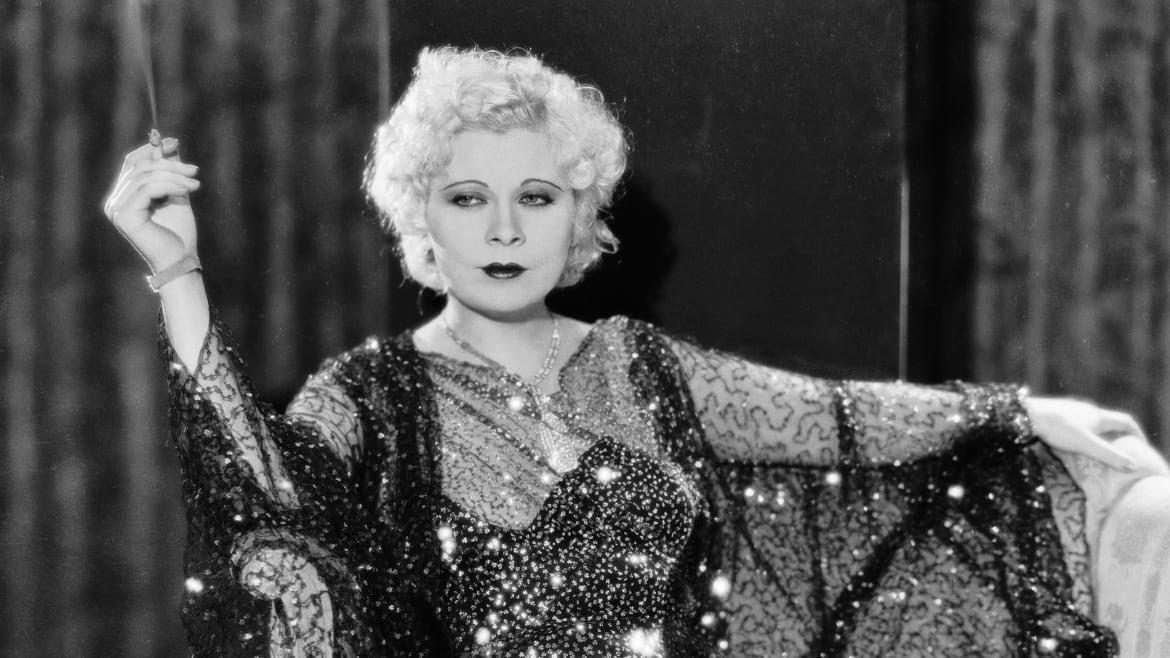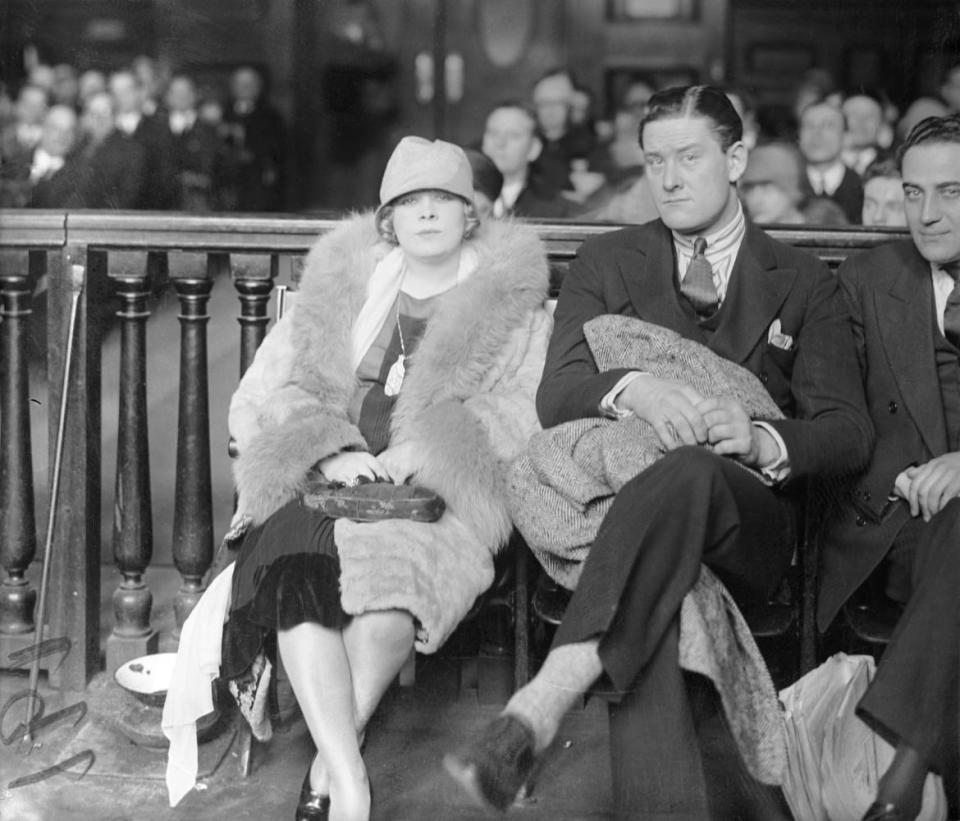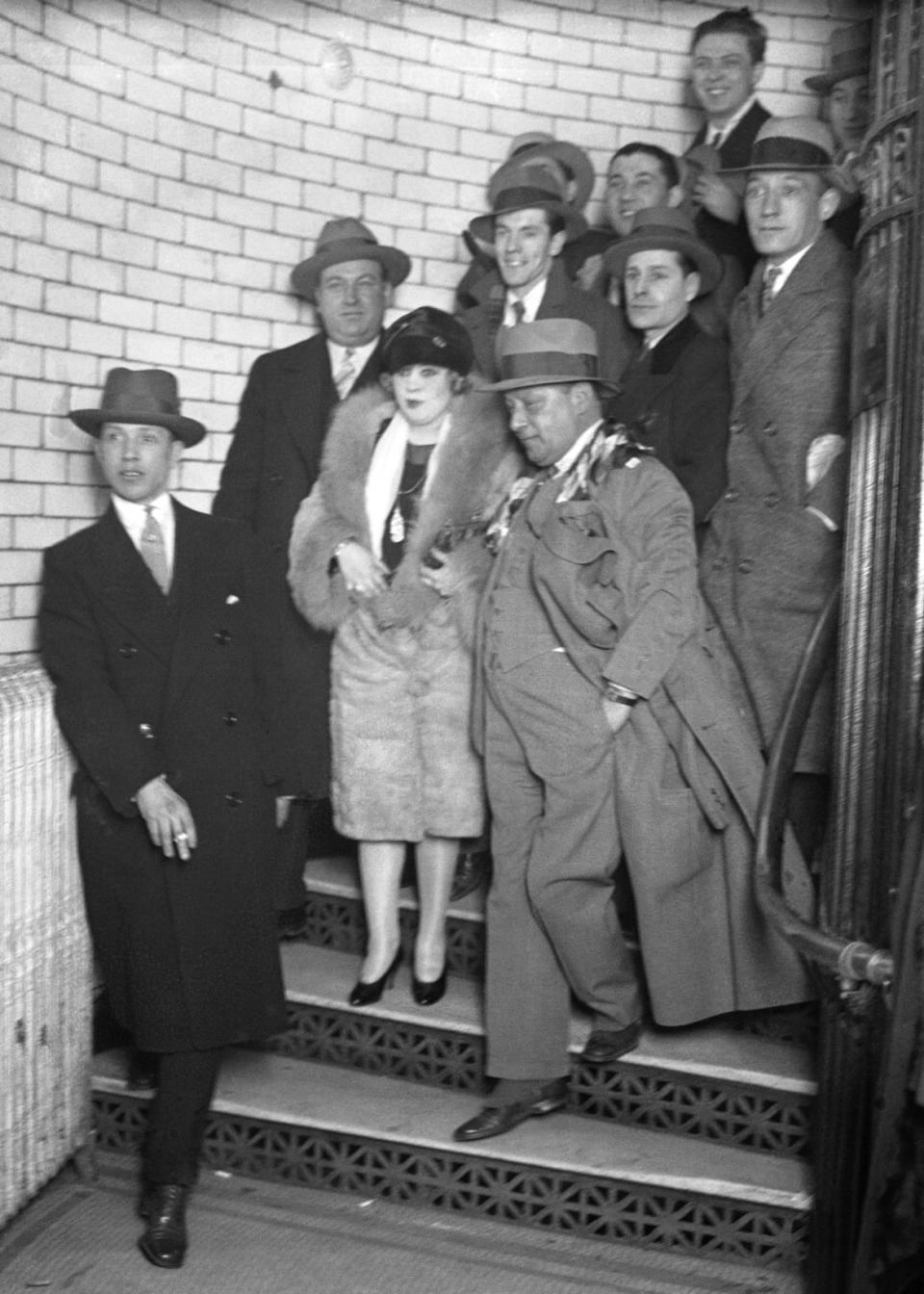How Mae West’s Play ‘Sex’ Scandalized Broadway—and Landed Her in Jail

On April 19, 1927, actress Mae West pulled up to Welfare Island, now known as Roosevelt Island, in the back of a limo. She was sharply dressed down to her silk underwear and carrying a bouquet of white roses. When she stepped out of the limo, she smiled for the waiting photographers…and then checked into the women’s prison to begin serving a 10-day sentence.
As this performance showed—as her entire life and career would show—Mae West had no regrets. She was a pioneer, pushing the boundaries of the roles women were allowed to play both onscreen and off and refusing to apologize if her behavior shocked or offended.
She was, after all, the actress who would quip in the 1933 film I’m No Angel, “When I’m good I’m very good. But when I’m bad, I’m better.”
The Book that Shocked Tinseltown
She was exactly the kind of woman that had the prudish authorities shaking in their tightly buttoned trousers in early 1927 as a wave of moral panic suddenly swept New York City and across the stages of Broadway. They decided to make examples of three “indecent” plays, including West’s not-so-subtly titled Sex.
It was West’s first star turn on Broadway following a career in vaudeville. It was also West’s first attempt at writing her own play. But the actress who would come to dominate the silver screen with her witty repartee and bombshell looks in just a few more years knew that this injustice was also an opportunity. She embraced the 10-day incarceration that followed and turned the scandal to her benefit: she welcomed the free publicity boost that would take her career to the next level.
“It became the fad in not a few quarters to see ‘Sex’ two or three times”
West was a born entertainer and demanded her spotlight on the vaudeville stage from an early age. (“She included weight-lifting in her act and she says she can still carry four men on her shoulders,” Thyra Samter Winslow wrote in the New Yorker in 1928.) But she dreamed of more. West wanted to be a well-regarded actress.
There is a common refrain that can be heard in the conversations about representation in Hollywood today: if you want good material or good parts as a woman, as someone from an underrepresented background, as an actress of a certain age, you have to write it yourself.
Nearly a century ago, when women had even less of a say in the entertainment business than they shamefully still do today, West instinctively knew the wisdom of this career move. When she couldn’t find any scripts with parts that she thought were up to snuff, she decided to write her own.
Sex may have been provocatively titled, but, by today’s standards, the show was quite tame, though the underlying social issues it addressed still have resonance.
In the show, West played a sex worker who was trying to choose between two men: a young guy she kept in the dark about her real identity or an older man who accepted her for who and what she was.
“The play is about how she can claim power within the confines of being a woman and a sex worker in the 1920s,” Ashley Jacobson, co-founder and artistic director of The Dirty Blondes, told The Guardian in 2016, when her theater group staged a live reading of the show. “In the play, every woman is reduced down, as though all they offer is sex—that’s why it’s called Sex.”

Mae West and Barry O'Neill, two of the principal actors of "Sex," in the courtroom.
By all accounts, the show was a sensation, though most reviews seemed scandalized by its content and most proper theatergoers claimed to be returning for repeat viewings out of an outraged curiosity.
“People thought it vulgar, ridiculous, or funny, or a perfectly terrible play, laughed—and sent their friends to see the show,” Winslow wrote. The New York Times explained in 1928 that “It became the fad in not a few quarters to see ‘Sex’ two or three times, and some of our best people were caught entering or leaving Daly’s Sixty-third Street Theatre.”
The people who didn’t initially object to the play? The city authorities. Several months after its opening night, Sex had undergone a review from the city’s play jury and had been given a clean pass to let the show go on. For 10 months, West and her troupe of actors took the stage each night to perform the feminist drama in front of an audience that is believed to have numbered as high as 325,000 over the course of more than 370 performances. It became the third longest running show in Broadway history up to that point.
But that all came to a screeching halt on the night of February 9, 1927. When West exited the stage that night, she was immediately surrounded by members of the New York Police Department’s Municipal Vice Squad who arrested the leading actress and 20 of her cast members. The star spent the night at the rough and tumble Jefferson Market Women’s Prison.
Far from being shamed, West knew immediately that she had an opportunity on her hands. She was proud of her show, but also, this scandal would do more to publicize her as a writer and actress than any slow rise through the entertainment ranks. When given the option to close Sex and have all charges dropped, she declined. (The other two shows raided that same night took the deal).

Mae West, as she left court in 1927.
On April 5, a grand jury indicted the star, ruling that Sex “tended to corrupt the morals of youth and others.” West was clear-eyed about the situation. When a reporter who asked what West thought would happen, she replied “I expect this will be the making of me.”
When the trial began soon after, West must have felt right at home. Onlookers flocked to the courthouse, filling the seats and spilling into the court’s hallways as if they were ticket holders at the day’s most fashionable show.
But that show came to a close on April 19 when West was found guilty and was sentenced to 10 days in jail and a $500 fine. She wasn’t too upset by this outcome. By all accounts, she embraced her new role as prisoner, making friends with the fellow inmates and dutifully doing her chores.
Her only complaint was the state of the standard issue undergarments. Here, the historical records differ. Some say she argued with the warden and was allowed to continue wearing her own silk. Others, that she wasn’t so lucky and that the uncomfortable underwear drove her to write a poem about her plight dedicated to the warden.
The dust-up over her knickers aside, West emerged from prison after eight days (she was let out two days early on good behavior) staunchly unapologetic and in good spirits. In the following years, Mae moved Sex to Chicago and wrote several more plays that continued to address taboo topics like homosexuality and women’s sexuality.
The ripple effects of the moral panic that mired Sex in scandal would last for decades. On April 6, the day after West was indicted, the New York State Legislature passed the Wales Padlock Law, which allowed the authorities to shut down any theater that put “sex degeneracy or sex perversion” on stage. The law would affect West’s 1928 play Pleasure Man, not to mention nearly four decades of other performances with LGBTQ themes until the law was finally repealed in 1967.
West’s quip to the reporter that April day as the trial began would prove correct. Her popularity driven by her sensational arrest would continue, and in the early 1930s, she would finally get her big break in Hollywood at what was then considered the ancient age of 38.
But West wasn’t just grateful to get an offer.
In the age of the career straitjacket that was the Hollywood studio system, West negotiated a groundbreaking contract with Paramount that led her to become one of the highest paid actresses, but also one who retained some of her artistic freedom. Her contract stipulated that she was allowed to write her own lines and scripts, and to have a bigger say in production decisions including on things like her costumes and co-stars.
“Some of the papers called my earlier plays garbage, but that sort of garbage was what my patrons wanted and I gave it to them, she told The New York Times in 1928. “And, besides, Ibsen’s ‘Ghosts’ and ‘Sappho’ were called garbage and worse names than that when they were produced, and look at them now. ‘Ghosts’ is a classic, and maybe ten years from now they’ll want to see ‘Sex’ again and call it a classic.”
Get our top stories in your inbox every day. Sign up now!
Daily Beast Membership: Beast Inside goes deeper on the stories that matter to you. Learn more.

